
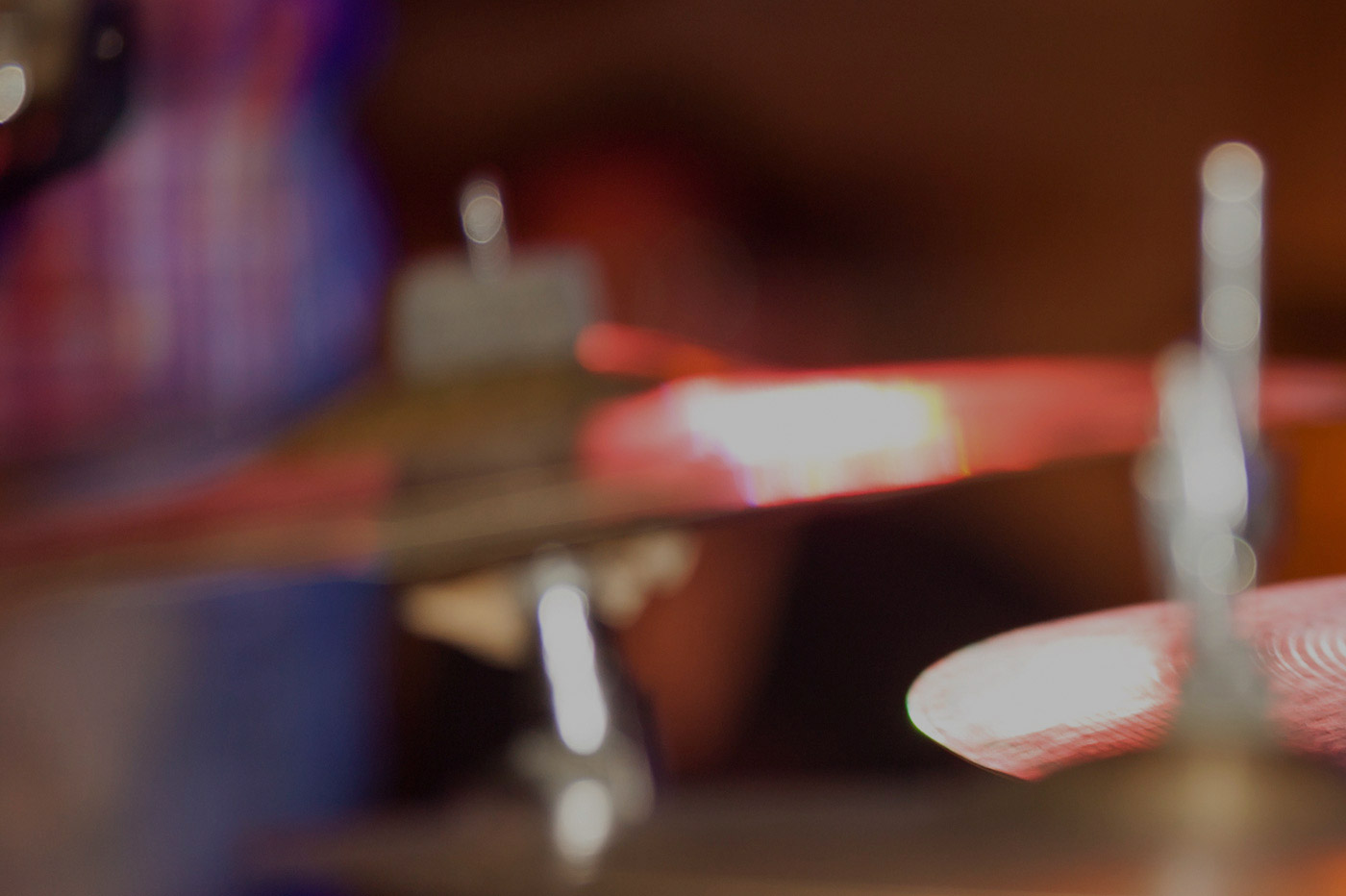
...there are many paths
...find yours!
Established in 1918, the University of Toronto’s Faculty of Music offers a vibrant and welcoming learning environment to a diverse and talented group of students. The U of T provides exciting opportunities to study composition, performance, music education, music history & culture, and music theory with an internationally renowned and dedicated faculty. We offer a rich array of courses and programs rooted in inclusive excellence that prepare students for a variety of careers. Our beautiful concert halls, superb music library, and student-centred teaching offer an exceptionally strong educational experience in one of the world’s greatest cities.
Warmly,
Ellie M. Hisama
Dean, Faculty of Music
Professor of Music
University of Toronto
You will find support everywhere on the University of Toronto campus, starting with the Registrar’s Office. The Registrar's Office at the Faculty of Music is your "reliable first stop" for information and advice on academic, personal, and financial issues. The office is also responsible for the administrative operations of the undergraduate program, including registrarial and student records, course administration, convocation, examinations, marks, information on scholarships and bursaries as well as policies on academic regulations.
If you are a current student, you can access our Portal for access to detailed information and often requested forms, information on Student Services and Resources as well as important information on Rules and Regulations.
Check here for often requested Contact information.
If you are a current graduate student, you will find more information here.
Check out Ulife - your one-stop website listing a large and diverse directory of student clubs, organizations, activities and opportunities on all three campuses.
You can also build your supporting cast just by getting out there. Explore the campus. Try something new. Meet new people. Be active. Contribute something to the community. The more you explore, the more friends you’ll make, the more you’ll know about the services, and the more you’ll know about how to get what you need when you need it.
Browse the important websites and discover the many services that will serve as your advocates and as your cheerleaders. They’re here to hold you up when you struggle and to help you grow when you’re ready.
Someone you know and are close to is following up on a dream…and we are here to support and enhance his or her future.
Your words and presence are invaluable in their thoughts and in their lives.
More than educators, we also live and breathe music – performance, research, education, and new areas of opportunity.
We are privileged to have bright, passionate and talented students to colour our world and we invest ourselves in furthering their ambitions and helping them to realize their potential.
While you are with us, we hope you will experience our music with us by attending one of our many concerts and events.
Please also check out We Live Here for more on things to see and do in Toronto.
We hope to see you around…we’re the ones with music on our minds
The Faculty of Music hires Sessional Lecturers to deliver some of its undergraduate and graduate courses. Teaching positions for individual courses are posted below. Decisions concerning hiring are made in June for Fall or Winter courses. Some decisions may be made earlier or later depending on enrolment and unexpected vacancies. Persons who submit applications and CVs will receive emailed job posting information for specific positions for the subsequent 24 months.
Please note! These are not TA positions. When TA positions become available, you will be notified by the Graduate Office.
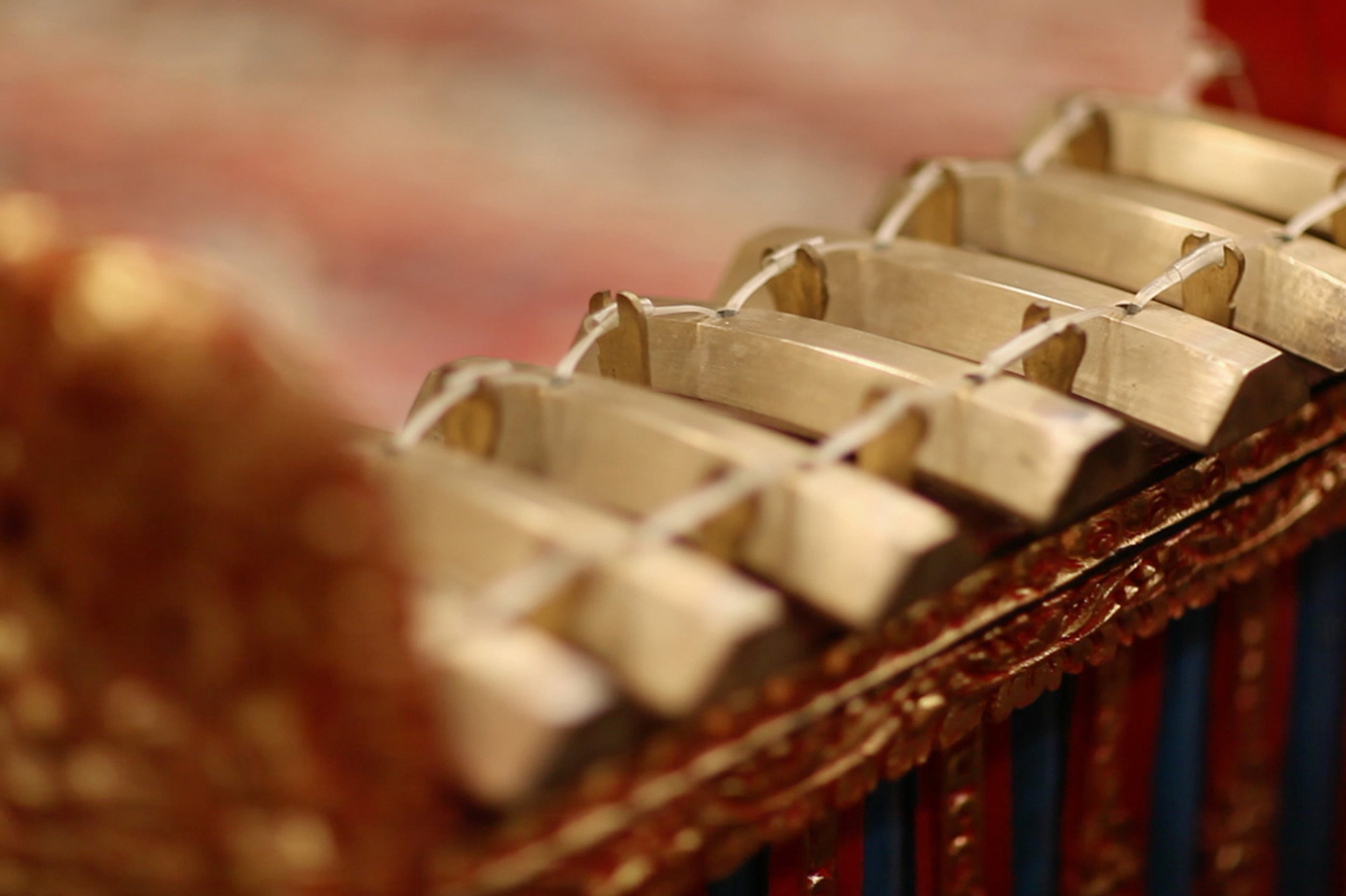
We create new music through programs in Composition, Jazz, Film/Media and Large Ensembles. We create new music through our composer-in-residence programs, our Electronic Music Studio and our Contemporary Music Ensemble. And we celebrate new music annually through our New Music Festival with its Distinguished Visitor and our Karen Kieser Composition Prize.
We produce new music through our Opera program. New stagings of classic and contemporary operas that train professional singers, instrumentalists, stage directors, repetiteurs, and coaches. And we celebrate annually with a new fully staged, orchestrated opera on an original libretto through U of T Opera and our Opera Student Composer Collective.
Many languages make reference to the ludic qualities of music making: play in English, jouer en français, spielen auf Deutsch.
Do you play an instrument? Are you interested in performing at the highest level?
Our goal is to give you the best foundational technical and finest advanced artistic training possible through private studio teaching with many of Toronto’s top professional teachers and players. While with us, you will play in well-coached U of T chamber music ensembles (strings, winds, brass, percussion, piano, guitar, contemporary music, Klezmer) and perform in U of T’s renowned large ensembles (opera, orchestra, winds, and choirs).
And you can also get professional playing experience through our Music Booking Office.
Schoenberg introduced his 1911 Theory of Harmony text with the words “I have learned this book from my students.”
At U of T Music we believe that the Teaching / Learning relationship is a powerful dialogue where enthusiasm meets experience and together we act in the service of musical creation, expression, and understanding.
We love teaching and we’re still learning.
Our award-winning professors, lecturers, and professionals work with undergraduates from day one. Our graduate students are mentored by outstanding professionals in their fields.
And we teach the next generation of great teachers through our Education and Pedagogy programs.
One of the added-values of being at a great music school inside a great university is the level of thinking that goes on.
Our academic programs in music—from Theory and Composition, to History and Culture, along with your training in Education and Performance—develop your critical thinking abilities to an exceptional level.
So that you not only do music, you think music.
Your undergraduate music degree program also includes opportunities to take a range of courses in Arts & Science or other subject areas from the greater U of T and its distinctive College system. And you have access to a Music Library that ranks as one of the best in the world.
As you build your fluency and expertise relation between Think and Do, between thought and action becomes seamless.
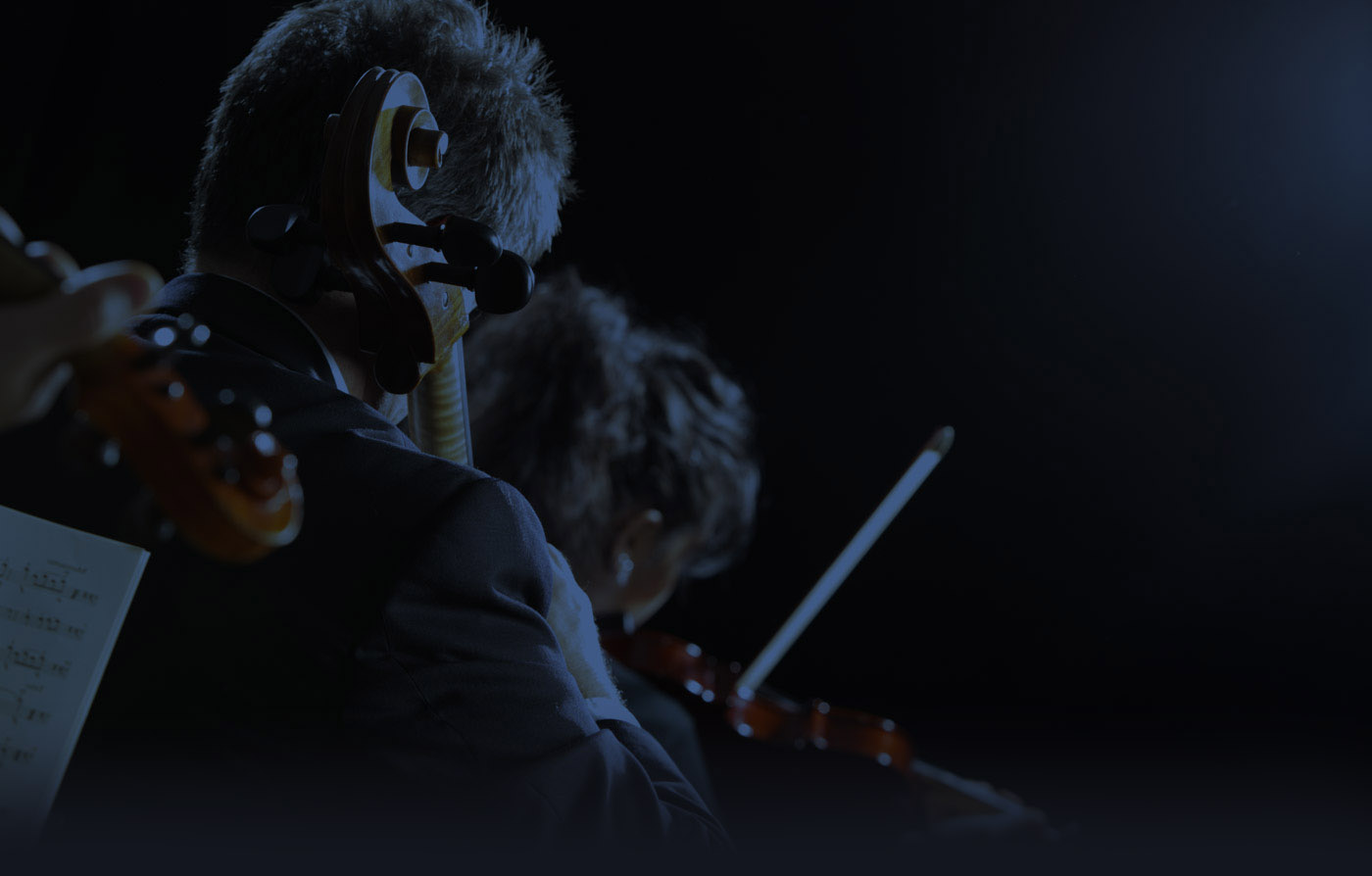
Established in 1918, UofT Music is Canada’s leading institution for higher education in music and is a growing global presence in musical training, interdisciplinary research, and digital media content development.
UofT Music is committed to preparing our students for successful careers in and beyond music in a swiftly changing global environment. We embrace the global challenges of building culturally informed, healthy, sustainable societies, and preparing global citizens for leadership roles.
Space for UofT Music includes 3 sites:
(1) The Edward Johnson Building (EJB) (1964) with its MacMillan Theatre (MT 815 seats) and Walter Hall (WH 490 seats) performance spaces, large ensemble rehearsal rooms, classrooms, and studio offices, and its renowned Music Library (1990 additional wing).
(2) The Faculty of Music South (90W), a satellite building at 90 Wellesley, a converted dormitory built in 1955, used by Music since 2007 and partially renovated in 2011 for Jazz, graduate student offices, and other Performance functions.
(3) The transformative new major New Building Project now in the planning stages for 90 Queen’s Park (90QP) in partnership with other university and external stakeholders, which will connect the EJB directly to the 90QP facility and will include a New Recital Hall for Music as well as other related spaces for performance, conferences, and special events.
Concert Halls
With one of Toronto's largest stages, an orchestra pit for 50 musicians, and a full fly-tower, UofT Music's MacMillan Theatre is the city's busiest stage.
The MacMillan Theatre seats 815 people and has complete lighting and recording facilities.
Designed to present operas, orchestral works, and recitals, MacMillan Theatre is ideal for guest productions, conventions, filming, and private events.
For rental information please contact our Concert Office Manager, Mary Ann Griffin or Fred Perruzza, Director of Theatre Operations.
MacMillan Theatre General and Technical Information
Seating Plan
Named for Arnold Walter, Dean of UofT Music (1952-1968), with 490 seats, Walter Hall is Toronto's finest small auditorium. Designed for chamber music and solo recitals, Walter Hall also has a Casavant Organ.
The intimacy of Walter Hall makes it an ideal venue for your event. To make rental arrangements please contact our Concert Office Manager, Mary Ann Griffin our Building Manager Joe Lesniak.
Walter Hall General and Technical Information
Seating Plan
Exciting news - we are building a new recital hall located in a new facilty at 90 Queen's Park Crescent. If you are interested in a naming opportunity for our new hall at 90QP, please contact Don McLean, Dean of the Faculty of Music.
Our season is well underway and there is so much to choose from.
Visit our online calendar often for concerts and events and subscribe to our YouTube channel for exciting premieres, livestreams and performances from our archives.
U of T Music is the privileged host of many Resident & Visiting Ensembles. Hosting ensembles is another way we provide rich experiences for our community. The ensembles bring scholarship, performance, and mentorship to our stages and classrooms...we bring the opportunity to work with students.
Our partnerships extend to all of the major performing ensembles and arts organizations in the Greater Toronto Area (GTA). Proximity to great sounds and organizations is one of the best features of our location in Toronto—a world city for music.
Our students are among the very best. Their talent and passion is reflected in their music and in their expression. They are professionals that we are justly proud to have here at UofT.
We actively support our students through our Booking Office by promoting and coordinating opportunities for them to perform at public and private functions.
For information as to how you can elevate your special occasion with their exciting musical performances, please contact us.
You understand philanthropy…
We understand philanthropy…
Together we create Moments & Outcomes
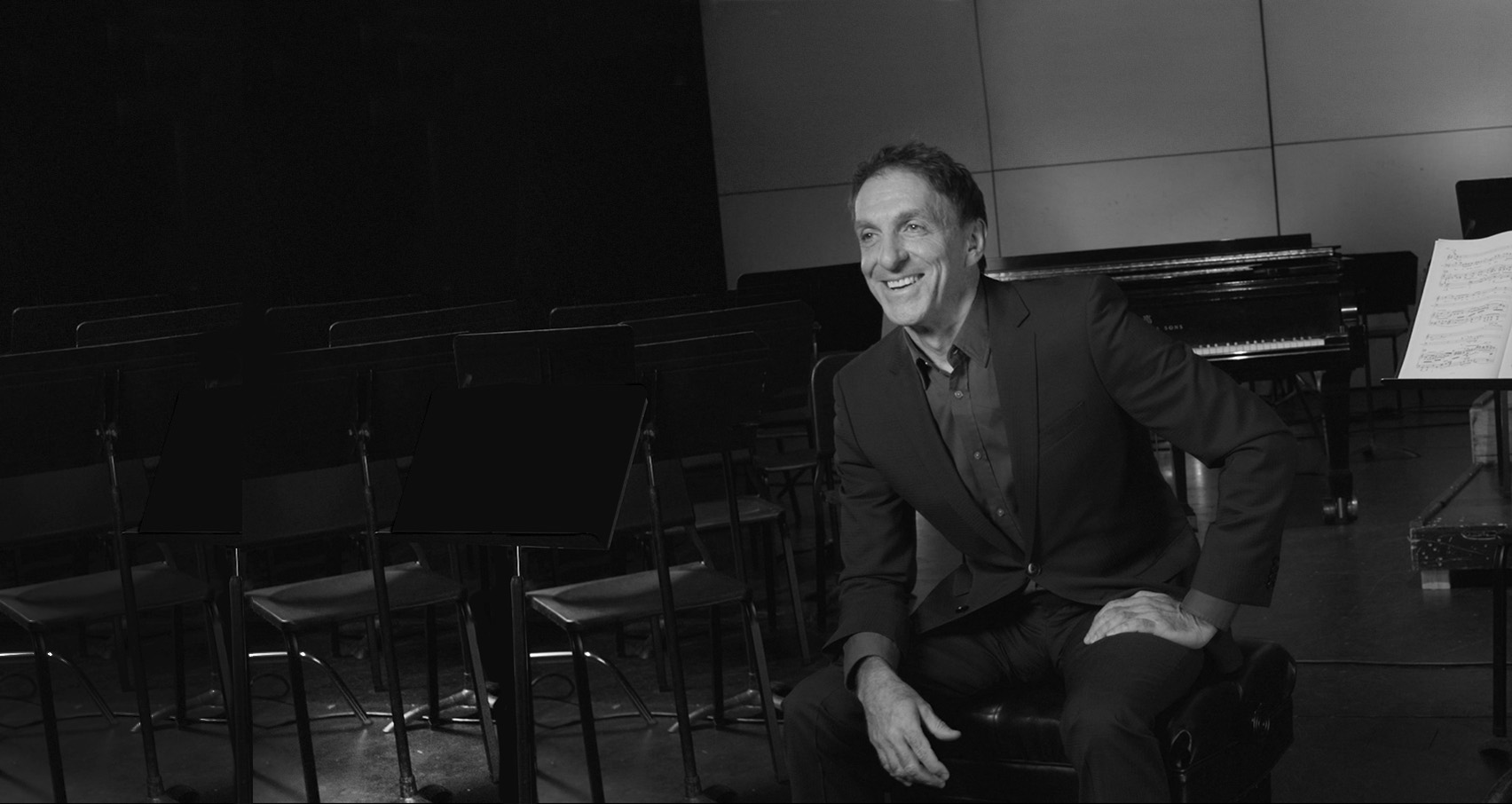
UofT's Faculty of Music is the engine that drives the performers, composers, scholars, and educators who will shape tomorrow's musical experience and sustain Canada's cultural economy.
Intensive classroom teaching and performance coaching by distinguished faculty and visitors pushes our students to explore new possibilities. Not a day goes by without lectures, master classes, and performances of special note. Our mentorship program connects alumni with current students helping them make the transition from the academy to the working world.
We rely on donors like you to ensure that our exciting programs continue. Donors like you ensure that our young musicians have the financial support necessary to be able to focus on their studies to achieve their artistic and academic goals.
The University of Toronto Boundless Campaign
90QP Chairs/Professorships Dean's Discretionary Fund MacMillan Theatre MaHRC Music Library Naming the Faculty Opera Student Support
In his previous position, Dean McLean was in part responsible for the largest naming gift to a performing arts faculty in Canada’s history. The Faculty of Music was not named in UofT’s previous campaign. What a Boundless opportunity for a visionary philanthropist! It is now Toronto and UofT’s turn.
MacMillan Theatre Major Capital Renovation Project
State-of-the-art when it opened in 1964, this home venue for our renowned UofT Opera and large ensemble programs, with its still awesome stage and fly tower, is overdue for a transformative renewal that will return it to world-class status as a theatre for opera production and related performing arts presentations, training, and digital presence.
New Spaces for Music in the 90QP (90 Queen’s Park) Major Capital Project
In September 2014, UofT announced exciting plans for the transformation of the 90 Queen’s Park site in partnership with multiple stakeholders inside and outside of the University. For the Faculty of Music, the 90QP project will create a “New Recital Hall” (a world-class space and high-profile naming opportunity), and will provide direct connection from Philosopher’s Walk to Queen’s Park Crescent and Avenue Road through the Edward Johnson Building and into the Atrium of the new complex with its New Recital Hall and related spaces for performance and conference activities.
Music Library Naming Opportunity & Capital Renovation Project
UofT’s Music Library collection is a national treasure and one of the top four music research libraries in North America. Moved to a largely subterranean new wing in 1990, the Music Library offers a stellar naming opportunity for an enlightened donor. Renovation plans focus on creating a modern teaching and learning environment to complement our ongoing responsibility for the preservation and development of this amazing collection.
MaHRC (Music and Health Research Collaboratory) Naming & Support
Established in 2012, MaHRC is quickly moving to create a global leadership position in the emergent interdisciplinary field of music and health, to enhance our understanding of the role of music and sound in individual and societal health and wellbeing. With already over 50 researchers from Music, Medicine, and other faculties, the UHN (University Health Network), other clinical research teams, and partners for other universities, MaHRC is seeking support for its innovative mission, projects, and collaborative programs. A transformative naming opportunity for someone, a target for directed support from several individuals already.
Opera Program Naming Opportunity & Program Leadership Support
Celebrating its 50th anniversary season this past year, since its inception soon after WW II UofT Opera has been Canada’s pre-eminent university-based opera training program. Over the years UofT Opera has been the training ground for many of Canada’s greatest singing, coaching, conducting, directing, and theatre design talent. Today our graduates continue to win major competitions and to move on to professional companies and young artist programs. UofT Opera: a legacy naming opportunity for some great philanthropist and a popular direction for support from our loyal annual donors.
Chairs / Professorships in Support of Faculty Leaders
Many Areas in performance, teaching, and research at UofT Music have outstanding potential and they need to attract and retain high-profile faculty in an increasingly global talent pool. Support for Faculty Leaders helps secure and sustain excellence.
Student Support—Graduate Fellowships, Undergraduate Scholarships, Program Support
As part of the University of Toronto the Faculty of Music is committed to providing access and opportunity to the best and brightest students regardless of means. Graduate Fellowships are absolutely essential to attract the best national and international prospects. Though our students do quite well in securing limited available external research funding, we need major philanthropic support to provide graduate fellowships across all program areas at the master and doctoral levels. UofT Music has benefited from significant scholarship support (both endowed and annual) from many donors over several decades. But to remain competitive in a global context we need to be able to offer more substantial Undergraduate Scholarships and Graduate Fellowships, and to provide deeper Program Support to enhance student experience, notably to assist individuals and ensembles with travel to competitions, conferences, master classes, international exchanges, and summer programs.
Innovation Fund—Dean’s Discretionary Fund
In addition to the Alumni Annual Fund, the Dean’s Discretionary Fund provides resources to take advantage of opportunities as they arise: to provide ‘seed money’ or start-up funding for a new course, program, or research project, to purchase instruments and technical equipment, to ‘match’ other partnership sources. We hope to grow this fund substantially through direct funding and endowment.
Music students are inspired by the sounds around them. The noises and rhythms of UofT and of Toronto are written into song.
The world premier of a composition becomes a sold-out event. Performance takes flight.
For our students, it is another great musicial achievement, perhaps their first.
And people like you helped to make it happen...
Truth be told, giving sometimes goes unrecognized...
At other times, it is acknowledged...beautifully.
At UofT Music we want to work with you to support our students and programs and we make every effort to acknowledge and thank our donors.
At this year's season launch/welcome, Dean Don McLean shared this story about the emotional and relational importance of philanthropy from higher-education fundraising legend Don Gray:
Never Forget the Rose to the Widow and the Drum Serenade...
A middle class family who enjoyed the music of their local University gave a modest donation to its Music Faculty in memory of a late father and husband. The Dean immediately thanked them for their kind generosity and suggested that they might like to meet the beneficiary, the young student that their scholarship would support. They had the opportunity to meet her and to hear her graduating recital.
At the end of four years the family was also invited to attend convocation. As the young student stepped up to receive her diploma, she also received, as was custom at that school, a single rose. She turned, crossed the stage, and handed her rose to the widow who had made her graduation possible through that funded scholarship... a beautiful and graceful moment.
Years later, that same family made another donation to the marching band drum corps at another school. On a particular game day, the drum corps met the donor in front of the football stadium gate, surrounded her and, without any words exchanged, performed a drum serenade salute for her and then peeled off into the stadium.
When you are thinking about the power of philanthropy, particularly philanthropy in Music and performing arts:
Never Forget the Rose to the Widow and the Drum Serenade.
Imagine visiting a parent in a seniors' home. Today he may be withdrawn, confused, and agitated, he may have lost the ability to communicate, perhaps even recognize you. It is hard.
But, suddenly, when he listens to music...his toes start to tap, he calms down, and he begins to sing along...
MaHRC (The Music and Health Research Collaboratory) brings together experts in music, medicine, and clinical practice. MaHRC's researchers study diseases such as Alzheimer's, Parkinson's, stroke, chronic pain...and how music can and does make a difference.
Through UofT Music, UofT, UHN (The University Health Network), and other external partners, we are quickly moving to a global leadership position in this emergent field. You can support MaHRC and Music Research.
At UofT Music we are a national leader in Music Research in composition, performance, theory, musicology, ethnomusicology and education, and we offer a wide range of respected and renowned performance programs in many domains: classical, jazz, early music, contemporary, opera. Our humanities-based research on music & society, as well as our groundbreaking work in music & health, and our national leadership through the Institute for Canadian Music (ICM) need your support to sustain our award-winning efforts.
Annual Gifts Bequests & Planned Gifts Corporate & Foundation Support Naming Opportunities Scholarships & Endowments
UofT's Boundless Campaign provides many high profile and transformative naming opportunities for Music.
For more information on Naming Opportunities or other ways to give, please contact our Interim Director of Advancement, Tyler Greenleaf.
UofT Music offers numerous undergraduate scholarships and graduate level fellowships annually. The need remains far greater than our remarkable current capacity. At the present time, and notwithstanding our students' extraordinary levels of success in receiving outside scholarly grants, we still need to fund too many of our graduate students through scarce operating resources. Supporting graduate students annually can have an extraordinary positive impact on them personally and on the Faculty's overall ability to carry out our mission.
Every annual gift has an impact on UofT Music students...the Faculty of Music trains performers, scholars, composers, and music educators for the challenges and opportunities that lie ahead. The Annual Fund and the Dean's Discretionary Fund together help support many student and program activities, and are often used to leverage additional outside resources that help us realize projects that would otherwise be impossible. You can support our Annual Fund and Dean's Discretionary Fund online, or please contact our Director of Advancement, Jennifer Bremner
Corporate & Foundation Support
We are privileged to be teamed with several corporations and foundations who support our students and our programs, often by providing matching gifts. With help from your employer, your generous gift can double or triple in size . To find out how we can work better together, contact our Director of Advancement, Jennifer Bremner.
Leave a lasting legacy by including UofT Music in your estate planning. A gift by will or bequest provides you with the opportunity to support UofT Music once your needs and those of your loved ones have been met.
For more information, please contact our Director of Advancement, Jennifer Bremner .
...a tour… our city, our campus, our faculty...
…in a concert… over 600 annual performances plus lectures and masterclasses…many of them free…talent, passion, insight
…a moment … our ongoing story, highlights of our year and a taste of what is yet to come
…some musicians… our Music Booking Office professionally represents our talented students from clinicians, solo performers to ensembles... we can create those memorable moments at your event.
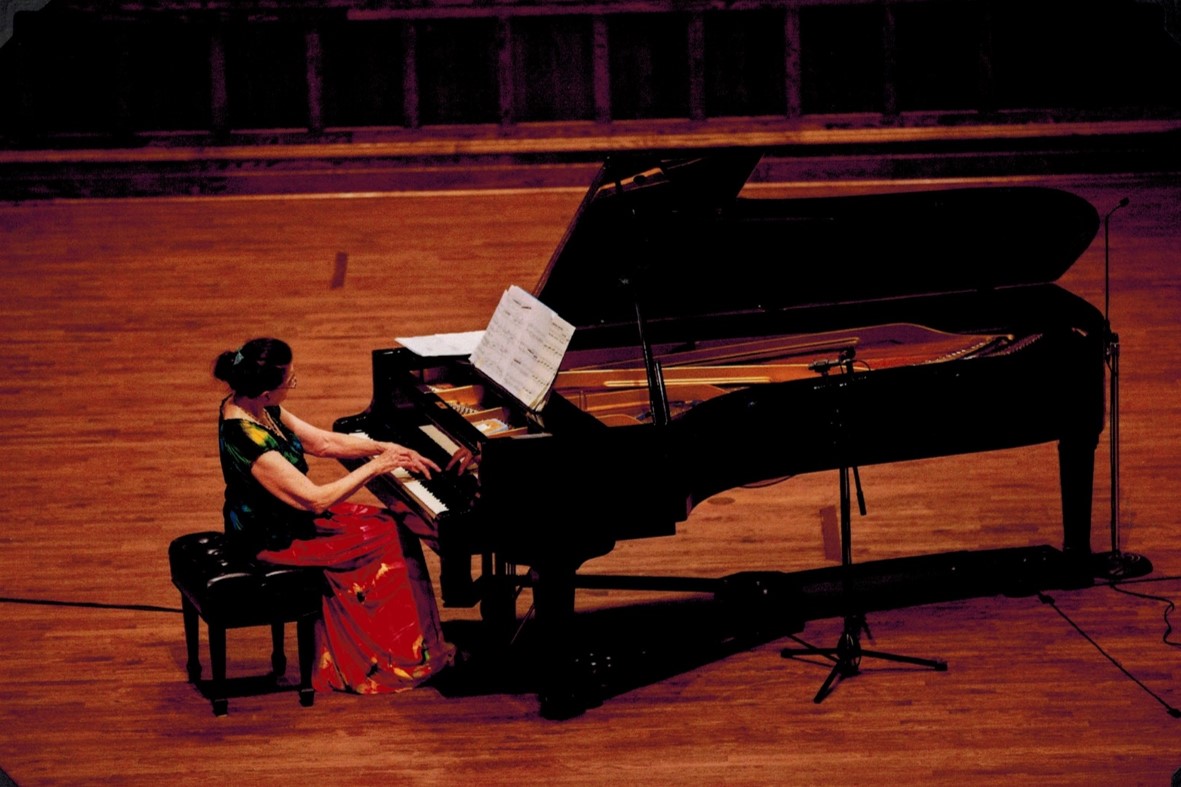
The Faculty of Music is pleased to announce the establishment of the Elaine Keillor Music and Health Research Innovation Fund, a substantial enhancement to music research at the University of Toronto and to the science and practice of Music and Health, made possible by a historic $1-million donation from scholar and musician Dr. Elaine Keillor.
The recent gift is the biggest made by a Faculty of Music graduate to date, and with Dr. Keillor’s rich personal history with the Faculty, marks a significant moment for Canadian music research, in particular to the future of Music and Health.
The Elaine Keillor Music and Health Research Innovation Fund is structured to produce recurrent annual funding that may be applied to support doctoral and post-doctoral fellows, as well as to direct funding opportunities for research projects of the Faculty’s Music and Health Research Collaboratory (MaHRC). A portion will be used to take advantage of the Provost’s current matching fund in support of graduate and international students for studies in Music and Health.
Who is Dr. Elaine Keillor?
“Elaine Keillor’s knowledge of Canadian music, as both scholar and performer, is legendary. She began her career as a remarkable child prodigy, completing the piano performance and theory requirement for the ARCT diploma at the age of ten - Glenn Gould was a late bloomer by comparison, as he did not earn his ARCT until the age of thirteen,” says Professor Robin Elliott, Jean A. Chalmers Chair in Canadian Music, and Director of the Institute for Canadian Music.
Dr. Keillor was the first woman to receive a doctoral degree in musicology at the University of Toronto. She is a member of the Order of Canada and a Carleton University Distinguished Research Professor Emerita, recognized for her research on music of Indigenous peoples of North America - particularly First Nations music in Canada. Along with scholarship, Keillor is an internationally recognized pianist with 30 CD recordings of solo and chamber music and numerous tours in her decades-long career. Dr. Keillor’s many research and artistic achievements, along with so many more in the areas of publications, awards and presentations, are thorough and impressive, and she is still actively teaching, performing and researching.
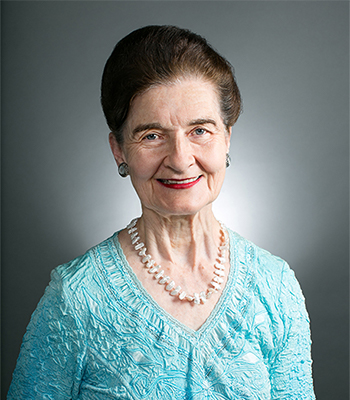
Elaine Keillor was born 2 September 1939 in London, Ontario. Her father, Stanley Keillor, ran a hatchery and was a singer and cellist. Her mother, Lenore Stevens Keillor, was a violinist and piano teacher. “Although my parents had limited means, they encouraged me, and ours was a musical household,” recalls Keillor. Her mother taught at home, and Elaine, a natural talent, was soon performing with orchestras. With the Canada Council not in place yet, and without a wealthy sponsor, Keillor took short-term lessons with teachers in the United States, England and Germany, paying for it with the money she made from performing, teaching, and being a church organist.
Unfortunately, during a cross-Canada tour in 1959, Keillor faced a great setback: “… I suffered an injury to my left hand while actually performing a recital on a day that had been very difficult, and for which I had not had any opportunity to even do a warm-up on the piano I had to use.” The pain was excruciating and she could not even stretch an octave with her left hand. At the local emergency, x-rays were taken, but there was no clear diagnosis available then. She completed the tour somehow, but it took four long years to get a diagnosis: a torn ligament in the left thumb. Facing invasive surgery that was likely to fail, she took the option to rest from professional touring for five years, to hope, and wait for the thumb to heal naturally.
Elaine Keillor and the University of Toronto:
Meanwhile, Keillor had met Vernon McCaw, a teacher, and in 1963 they married and moved to Toronto. He was teaching full-time for the Toronto Board of Education (now merged into the Toronto District School Board), and he decided to work towards a Master of Education degree at Ontario Institute for Studies in Education, simultaneously. “My husband had obtained his Bachelor of Arts degree though night courses and summer school”- they were no strangers to hard work.
While helping with Vernon’s research, Keillor found that she enjoyed academic work. As she was mostly homeschooled to accommodate her busy performance schedule, she did not experience much academic context till then: “Because of the hours I had needed to practice the piano and then the violin as well from the age of six, my parents had decided to homeschool me – a very unusual decision at that time, but my mother had a couple of school teachers among her students, so one of them would come for a piano lesson, then stay an extra hour to coach me,” says Keillor. She did attend secondary school part-time, but her remaining credits were done through correspondence courses and self-study.
With some private teaching and occasional gigs in her calendar, Keillor started to take courses at York University, as they had a much more generous policy for mature students. When York decided on a campus extension, therefore creating a long daily commute, Keillor decided to explore the possibilities at U of T Music.
During her initial entrance interview, Professor Harvey Olnick told her that she would have to begin at the second-year level, and recommended that she should look into studying musicology. “During that first year, I had to take many Mickey-Mouse courses, but fortunately I found some sympathetic professors who realized it was crazy that I should have to take them. They gave me final grades early, and that meant I had time to explore the wonderful resources of the music library,” recalls Keillor.
Elaine Keillor’s prowess as an academic and musician was quickly noted, and soon, she started to receive academic funding from U of T Music. Obtaining her Master’s degree in a year, she then accepted a full-funding offer for doctoral studies. Her dissertation project, an extension from the long-established tradition of studying ‘Kleinmeister,’ minor composers who influenced genres and other more famous composers, was on Leontzi Honauer, 1737-ca1790 and the development of solo and ensemble keyboard music. Completed in 1976 under the supervision of Professor Carl Morey, Dr. Keillor became the first woman to receive a PhD in musicology from the Faculty of Music.
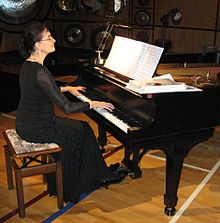
Dean Don McLean remembers her from his undergraduate days at the Music Library back in the 1970s. By then, Keillor was at the end of her doctoral studies: she was widely regarded by the students as a formidable individual, already known for her capabilities both as a researcher and performer. “At that time, these things tended to be isolated from each other, and, indeed, research on Canadian music was in its early, formative days,” says McLean.
Post School:
After graduation, Keillor continued her work as a church organist, and briefly taught at Queen’s University. “It was nearly 45 years ago, that I first became aware of Dr. Keillor, when she was appointed to teach at Queen’s University while I was an undergraduate student here,” recalls Elliott. After a year at Queen’s, Keillor accepted a position at Carleton University. She remembers: “For eleven years, I commuted between Toronto and Ottawa, until my husband retired.”
Professor Elliott and Dr. Keillor worked together on many occasions through the Canadian Musical Heritage Society (CMHS), a project started by Keillor and Canadian musicologist Helmut Kallmann at the Music Division of the National Library of Canada. Through the CMHS, the community built not only professional relationships, but also created strong personal impressions of one another; Elliott became better acquainted with Keillor’s selfless devotion to the cause of Canadian music, and Keillor was deeply impressed by Kallmann’s dedication. “I had always thought it amazing that this Jewish refugee, Kallmann, would take it upon himself to investigate the musical heritage of his adopted country when Canadians themselves showed little interest,” says Keillor.
Through CMHS’s work in tracking down Canadian notated compositions created before 1950, some 1,000 works were published, selected from 35,000 traced works; and Keillor felt that something must be done to mark Helmut Kallmann’s legacy: “Because I knew that he did not have children to carry on his heritage, I wanted to honour both him and also keep alive the tradition of Canadian musical scholarship that had been built at Carleton over the years,” says Keillor. So when the project faced difficulties due to lack of funding, Keillor dug deeply into her own pockets to ensure it and established the Helmut Kallmann Chair in Canadian Music at Carleton University in 2017. “Elaine’s donation to establish the Helmut Kallmann Chair in Canadian Music was an act of unparalleled kindness - and what a lovely, selfless tribute it was to name it after Kallmann, who was a kindly father figure to all Canadian music scholars,” says Elliott.
Elaine Keillor Music and Health Research Innovation Fund and Elaine Keillor Music and Health Research Fellowship
When Don McLean, the Dean of the Faculty of Music since 2011, heard about the establishment of the Kallmann Chair at Carleton University, he asked for a meeting with Keillor, and inquired if she might be interested in setting up something at the faculty that bore her name. “When he informed me about the Music and Health initiative, this was intriguing,” says Keillor.
The current education system’s lack of focus and appreciation for music has been personally troublesome for Keillor, and she is greatly concerned about the young generation who may have no possibility of discovering the joy of music. “I know that we have to go way beyond the so-called Mozart Effect, to create a change in attitude among the general public, and particularly among those in charge of our education systems. My hope is that the future work of MaHRC will go a long way towards achieving that goal,’ says Keillor.
Jennifer Bremner, Interim Director of Advancement at the Faculty of Music, first met Keillor in January 2019, while visiting alumni in the Ottawa area. She recalls that during their initial meeting, when she inquired about Dr. Keillor’s personal philosophy of philanthropy, Keillor expressed the values that her parents had instilled in her - that naturally one would give in whatever capacity they are able to.
Music and Health Research Collaboratory (MaHRC):
Established in 2012, MaHRC has been able to build a large community of research collaborators, becoming an international leadership centre for research, teaching, and clinical application of the latest developments in music and health science.
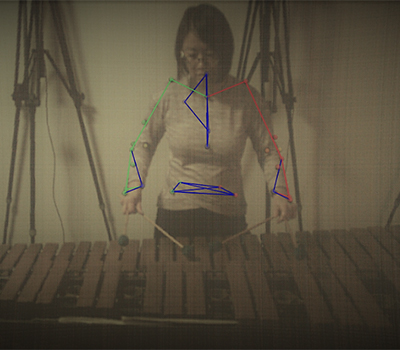
Located at the University of Toronto’s downtown Toronto campus, the current MaHRC in-house facility includes: a VICON motion capture lab (pictured above); two EEG systems and two Functional Near-Infrared Spectroscopy systems for brain imaging; a digital music lab; and individual work stations for all students and post-doctoral fellows. Collaborative resources include PET, fMRI, and MEG brain imaging.
“MaHRC runs about 18 research projects currently - some are on hold due to COVID-19, with 12 collaborative units across campus and teaching hospitals,” says Dr. Michael Thaut, Director of MaHRC. With Dean McLean’s invitation in 2015, Thaut left Colorado State University where he worked for 25 years. Since then, his main focus is on building a team of affiliate collaborator faculty, post-doctoral fellows, and students to develop a new comprehensive research plan.
In 2016, MaHRC started to focus its research into the basic and clinical neuroscience of music, studying how the brain processes music, in particular the connectivity between auditory and motor, language, and cognitive networks in the brain. Clinical translations of the neuroscience of music perception, music production, and music cognition have become standardized in Neurologic Music Therapy which utilizes research-based techniques to treat the brain using music and rhythm to optimize function and rerouting of neuropathways to achieve improved functionality and to produce rehabilitative results in non-musical domains, like speech, physical movement and cognition. Dr. Thaut was appointed a Tier 1 Canada Research Chair in Music, Neuroscience, and Health in 2017.
“The combination of fundamental neuroscientific research with clinical applications, notably in various forms of rehabilitation covers wide topics, such as Parkinson’s and Alzheimer diseases, dementia, traumatic brain injury, cardio rehab, autism, and more recently mental health,” says McLean.
The most profound significance of Dr. Keillor’s gift to U of T Music is its assurance of creativity in the present and the future. The unpredictable nature of the clinical research process means a project can often have limitations due to funding, especially for brain-related research. “Dr. Keillor’s endowment will provide a tremendous foundation in perpetuity to advance research in music and health on all levels, and support outstanding work of graduate students like Nicole Richard,” says Thaut.
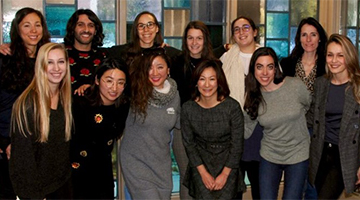
“I’ve had clients who went from being non-verbal to being quite loquacious with the help of music therapy, and have seen how NMT [neurologic music therapy] techniques can help organize the sensorimotor system to enable focus, concentration, and calm for people with autism spectrum disorder (ASD).”
– Nicole Richard, PhD candidate, Music and Health Sciences
(pictured above, second from right, front row)
Current collaborative projects in partnership include:
- Alzheimer’s Disease (MaHRC and St. Michael’s Hospital)
- Parkinson’s Disease (MaHRC, CAMH, and Toronto Western)
- Depression and Suicide (MaHRC and CAMH)
- Post-Stroke Recovery Study (MaHRC and TRI)
- Dissertation Project on Autism
- Centre of the Study of Brain, Performance, and Music Creation
“… With the potential to help treat depression non-pharmacologically, to reduce suicide risk, to help persons with Parkinson’s Disease improve their ability to stay mobile, to improve cognitive/memory abilities and induced brain plasticity for Alzheimer’s patients, to rethink the role of music in the neurodevelopment of autism spectrum disorder and to improve applications for high-performance movement, U of T Music is reimagining the potential that music embodies for the health and well-being of musicians, individuals and society.”
– Excerpt from Music and Health Overview, Faculty of Music
The Boundless Future:
Dr. Keillor’s life has been comprised of many amazing ‘firsts,’ and her scholarly activities and performance history reflects a deep dedication to excellency, especially in solidifying our Canadian identity. “Two signal events in Dr. Keillor’s career were the publication of her magisterial textbook, Music in Canada: Capturing Landscape and Diversity, and the release of her four-CD set of recordings, Sounds of North: Two Centuries of Canadian Piano Music,” says Elliott.
Looking back to Keillor’s own student days in the late 1960s and 1970 shows her blazing a trail for Canadian music research. “At this time, research on Canadian music was still in its early days, and was somewhat frowned upon in the academy - this was before the establishment of the Institute for Canadian Music, now called Institute for Music in Canada,” says McLean.
Since then, there has been an impressive development in the field, and in particular, Dr. Keillor’s dedicated work in Canadiana – in her daily teaching, written works and recordings, especially those of the twentieth century, First Nations musical tradition, and popular music – form an integral part of Canadian music. With her philanthropic contribution - especially with the establishment of the Helmut Kallmann Chair for Music in Canada and the Elaine Keillor Music and Health Research Innovation Fund, her dedication will continue to grow into the future as a rich legacy.
“I am deeply moved by Dr. Elaine Keillor’s generosity and her lifelong championing of Canadian music. As the first female PhD graduate from U of T Music, we should all be particularly proud of her pioneering achievements. To now have her name permanently associated with support for one of our leading areas of innovation is most gratifying. Philanthropy in the arts often comes from outside the field, from those who have achieved their success in business and industry. And we are grateful for their love of the arts and for their support. But it is a signal moment when someone who has dedicated their life to music, music research, and music teaching finds it in themselves to make such a transformative financial contribution. We know that Elaine’s gift will be a model and inspiration for us all.”
– Don McLean, Dean and Professor, Faculty of Music
Article by Dr. Hye Won Cecilia Lee, BMusEd, MMus, DMA
Images courtesy of Dr. Elaine Keillor and MaHRC. Learn more about Music and Health at the Faculty of Music.
The University of Toronto is a world-renowned university in a celebrated city where knowledge meets achievement, history meets future and ambitions meets inspiration. Leading academics and employers from around the world have rated the University of Toronto as #1 in Canada and among the best in the world. Our undergraduate students have an exceptional range, choice and depth of study; they can choose from 700 academic programs, learn from the best minds, get involved with research, and take advantage of smaller learning communities across our three campuses, which span the Greater Toronto Area. Each campus offers a wealth of opportunities across multiple disciplines. To the west, the University of Toronto Mississauga combines advanced research with an intimate academic experience. The University of Toronto’s St. George campus features diverse college communities within Toronto’s vibrant downtown core. And to the east, the University of Toronto Scarborough leads community-engaged research, hands-on learning and co-op programs both locally and internationally. Working with faculty and other students in close-knit communities, our students tailor their experiences to their interests and develop passions that help them make their mark on the world.
Home to Canada's largest number of musicians and venues, Toronto is a creative and business hub for music in Canada.
While in Toronto, plan on attending a performance of the Canadian Opera Company or the Toronto Symphony Orchestra.
Check out Toronto Life and Toronto (the official website of Tourism Toronto) for current shows, concerts and events.
There's music around every corner.
We are very proud to be part of U of T—a vibrant university community located in an amazing city with global reach.
U of T is a leader in research and teaching, an intellectual environment unmatched in depth and breadth.
The Faculty of Music at the University of Toronto brings together creative and motivated students with outstanding educators. With extensive curricula in fields such as classical and jazz performance, music education, composition, music history, music theory, and ethnomusicology, the Faculty of Music also offers courses that explore music’s intersections with health sciences, technology, and humanities.
Our commitment to artistic and academic achievement, the vast possibilities of the University of Toronto campus, and the vibrant and diverse cultural life of Toronto provide an exciting and inspiring learning environment.
Our season is well underway and there is so much to choose from.
Visit our online calendar often for concerts and events and subscribe to our YouTube channel for exciting premieres, livestreams and performances from our archives.